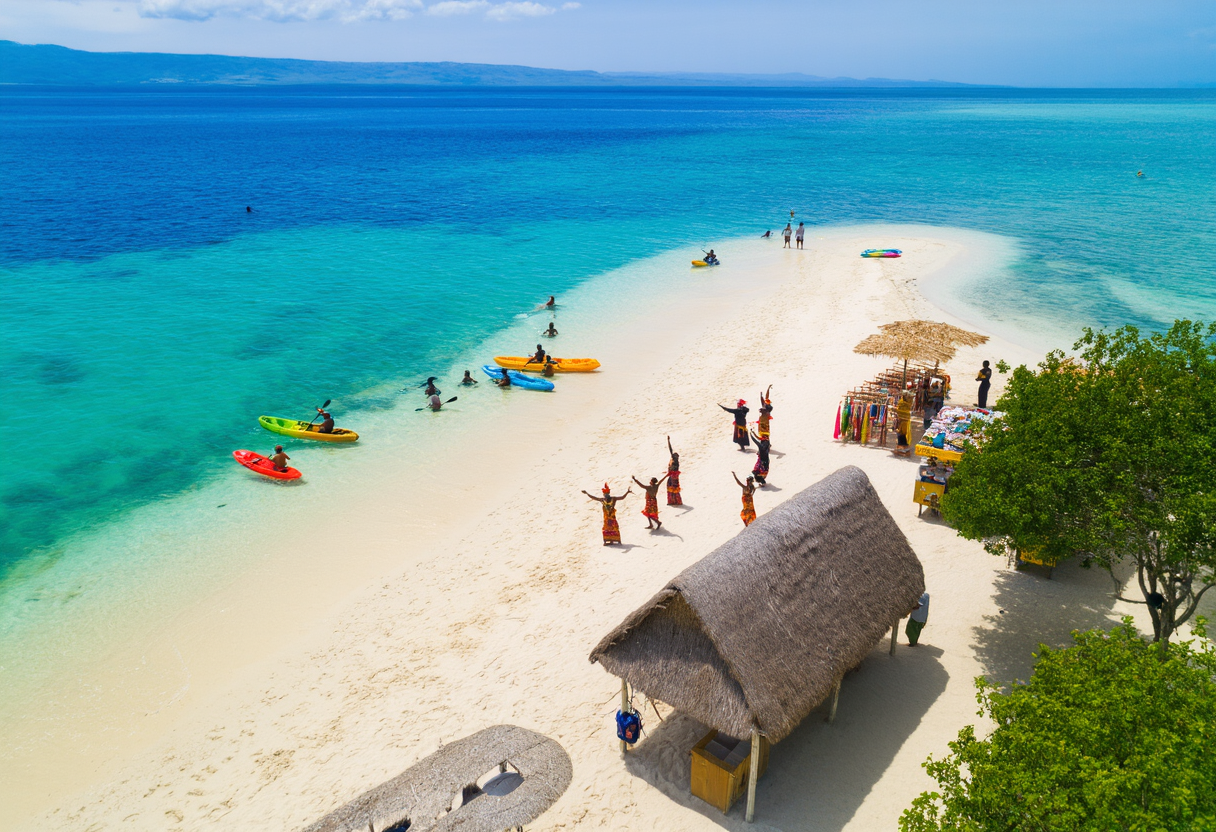Island Tourism: A Gateway to Cultural Richness and Economic Growth
Island tourism stands as a dynamic sector that not only revives economies but also enriches cultural landscapes. This article explores how island destinations capitalize on tourism to promote local customs, drive economic growth, and address environmental concerns. Unveiling the interconnected benefits of island tourism reveals its significance in a global context.
Island Tourism: Economic Growth Engines
Island tourism is a powerful engine for economic growth, especially in today’s interconnected world. As visitors flock to islands for unique experiences, local economies flourish through heightened consumer spending. These financial benefits span various sectors, including hospitality, retail, and transportation. An increased demand for services creates jobs and stimulates local entrepreneurship. However, it's crucial to engage with communities to ensure that economic benefits are equitably distributed. Through strategic planning and investment, island tourism can drive sustainable economic development, fostering long-lasting prosperity.
Cultural Heritage and Island Tourism
The connection between cultural heritage and island tourism is profound. Islands often possess distinct traditions shaped by their geographical and historical contexts, making them attractive to travelers. Through cultural tourism, islands can preserve and promote their heritage, reinforcing community identity. Activities like traditional craft workshops or local culinary tours give visitors an immersive experience while supporting the perpetuation of local culture. This exchange helps maintain cultural integrity in the face of globalization, emphasizing the unique narratives that island communities embody.
Environmental Sustainability in Island Tourism
Environmental sustainability plays a critical role in the conversation around island tourism. The natural beauty of islands attracts millions; however, unchecked tourism can lead to ecological degradation. There’s a pressing need for responsible practices such as waste management, conservation programs, and sustainable resource use. By prioritizing environmental health, islands can ensure the protection of their resources for future generations. Stakeholders must work together to create policies that promote both tourism and environmental stewardship, achieving a balance that benefits all. This is essential for the longevity of both the tourism industry and the ecosystems that sustain it.
Addressing Challenges in Island Tourism
Challenges abound in the realm of island tourism, from over-tourism to climate change. Increasing visitation can strain local infrastructure and resources, prompting discussions around capacity management. Furthermore, rising sea levels and extreme weather events pose significant risks that need addressing. However, these challenges can spark creative solutions. Education and community involvement are crucial in developing adaptive strategies that mitigate risk. Through collaboration between local governments and stakeholders, resilient tourism can flourish, allowing island communities to thrive despite challenges.
The Prospects of Innovation in Island Tourism
Innovation offers a pathway to address contemporary challenges in island tourism. Technological advancements such as virtual reality experiences could transform marketing strategies, attracting curious travelers while minimizing physical impacts. Additionally, enhanced digital platforms can assist in visitor management, ensuring that tourism is sustainable and beneficial. Implementing new technologies to optimize travel itineraries can lead to less crowded experiences, enriching visitor engagement. The ongoing evolution of island tourism will undoubtedly rely on harnessing innovation while maintaining respectful engagement with local cultures.
Conclusion: Recognizing the Impact of Island Tourism
In summary, island tourism serves as a catalyst for cultural enrichment and economic vitality. Its capacity to intertwine local heritage with modern experiences creates a unique allure for travelers. However, as the sector continues to grow, it remains essential to consider the implications for environmental sustainability and community engagement. Embracing the diverse impacts of island tourism can lead to meaningful experiences for all involved. By navigating the complexities of this industry, stakeholders can cultivate a tourism framework that celebrates the best of island life while respecting its vulnerabilities.
